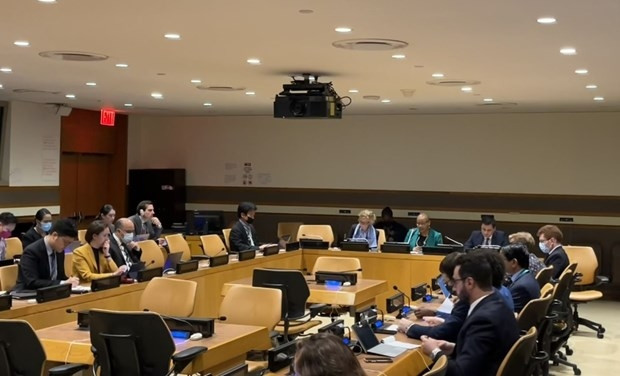Giang said the COVID-19 pandemic has revealed the global healthcare system’s shortcomings in epidemic preparedness and response, left heavy socio-economic impacts, slowed down or reversed the achievements in the implementation of the 2030 Agenda for Sustainable Development, and affected the health of people, especially vulnerable groups.
As the chair of the drafting of the UNGA Resolution 75/27, dated December 7, 2020, on the International Day of Epidemic Preparedness (December 27), Vietnam has been working actively with other countries to promote talks on measures for effectively improving the global healthcare system and to increase the sharing of lessons from the pandemic and good practices, thereby helping improve awareness and action to gear up for future epidemics, according to the diplomat.
At the consultation, many countries shared the view on the need to boost awareness and action to stay ready for coping with epidemics around the globe. They also affirmed continued participation in and contribution to this process.
The core group in organising the UNGA high-level session on epidemic preparedness and response comprises Australia, Bangladesh, Canada, Costa Rica, Ghana, Jamaica, New Zealand, Rwanda, South Africa, Sweden, and Vietnam.
It was set up as recommended by the Independent Panel for Pandemic Preparedness and Response, established by the WHO Director-General, with a view to reviewing the lessons from COVID-19 response so as to better prepare for future pandemics.
















